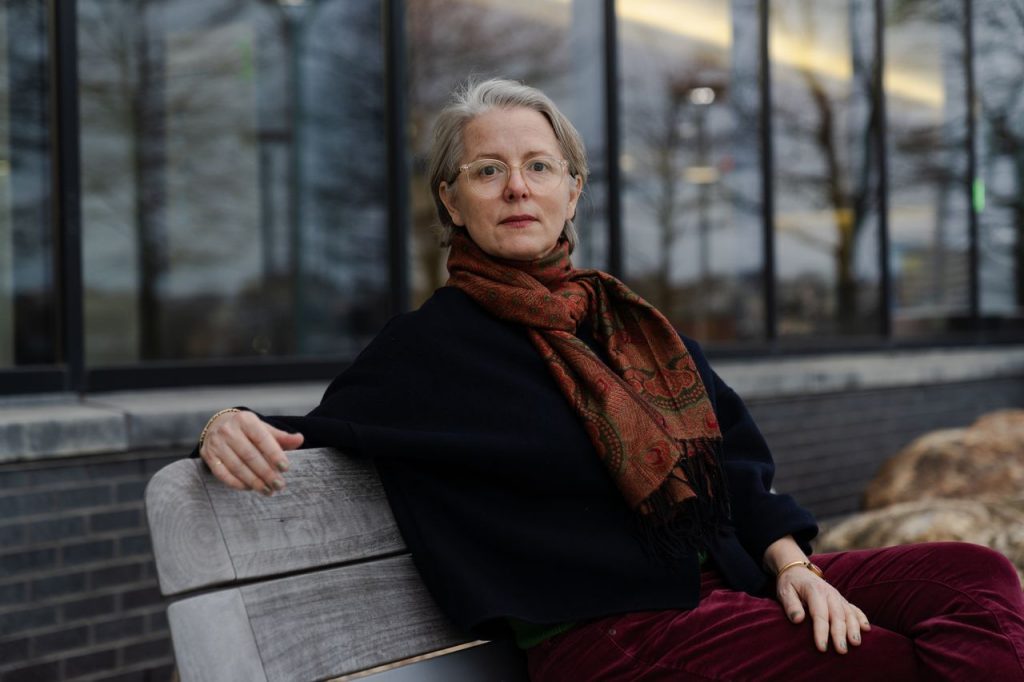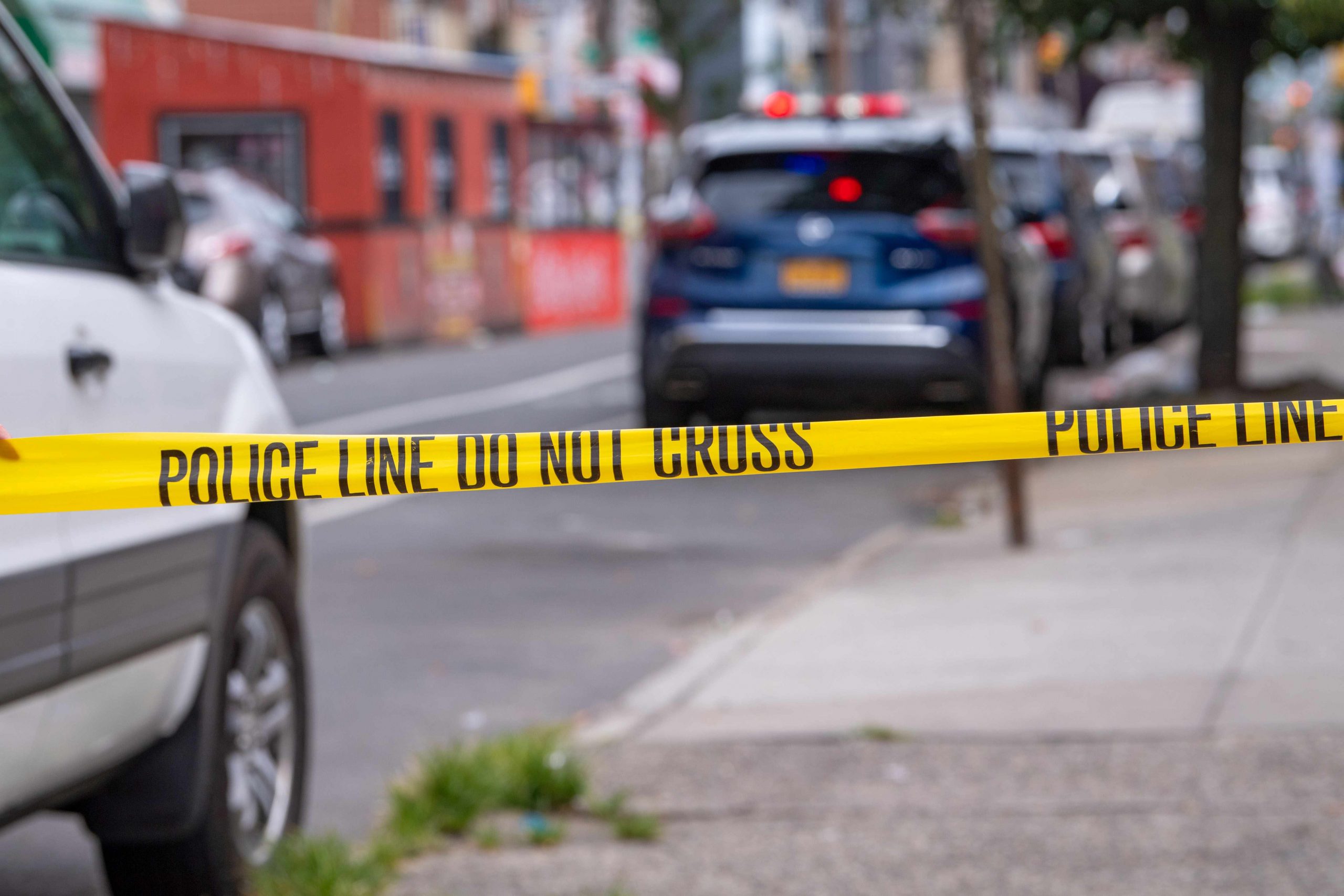BOSTON—For the past several weeks, Elizabeth Price has split her time between getting her son, Hisham Awartani, settled at Spaulding Rehabilitation Hospital, and speaking with federal and state lawmakers about the Nov. 25 attack in Burlington, Vt., that left Awartani without the use of his legs—and wounded two of his longtime friends.
The three 20-year-olds, students at East Coast colleges and all of Palestinian descent, were walking near Awartani’s grandmother’s house in Burlington when a man pulled a gun and started firing. The families believe the three were targeted because two were wearing traditional Palestinian scarves. Investigators haven’t brought hate-crime charges against the alleged gunman, who has pleaded not guilty to attempted murder, although federal officials have said they were investigating whether the shooting was one.
To the students and their families, the shooting was a hate crime spurred by anti-Palestinian sentiment amplified by Israel’s continuing war against Hamas in Gaza. In pushing for investigators to prosecute it as such, they have another goal: using this unwanted moment in the public eye to increase support for Palestinians in Gaza and beyond.
“This was a chance for us to say, ‘Well, if you’re listening to us about our boys, thank you, but did you know what is happening to other Palestinian children?’ ” said Price, who, along with the rest of her family, is an American citizen.

Elizabeth Price, the mother of Hisham Awartani, has been speaking with federal and state lawmakers in Burlington, Vt., since her son was shot in November. PHOTO: SOPHIE PARK FOR THE WALL STREET JOURNAL
Israel’s military campaign in Gaza has come under increasing international scrutiny. More than 24,000 Palestinians have been killed since the war began, according to Palestinian health authorities, whose numbers don’t distinguish between civilians and combatants. The war follows a Hamas-led assault on southern Israel on Oct. 7 that left about 1,200 people dead—most of them civilians—according to Israeli authorities.
Price and her husband, Ali, rushed to the U.S. from the West Bank city of Ramallah, where they live, after their son was attacked.
Price said she has met with several Democrats including Conor Casey, a Vermont state representative, to discuss gun violence, and her family received a standing ovation when they visited the Vermont legislature at the invitation of state Rep. Mary-Katherine Stone. She said she also has spoken with Rep. Becca Balint and Sen. Peter Welch, and thanked both for calling for a cease-fire in Gaza.
“If my voice can be heard for just a second, I want to make sure that it carries a message that’s important,” Price said.
Her advocacy echoes that of her son, who has called on the U.S. to back a cease-fire. Just days after being shot, Awartani also urged well-wishers gathered for a vigil at his school, Brown University, to think not of him, but of other Palestinians.
“I am but one casualty in this much wider conflict,” he said in a statement read by Beshara Doumani, a history professor at Brown.
The war had been on Awartani’s mind for weeks, as well as on the minds of his longtime friends Kinnan Abdalhamid, a student at Haverford College just outside of Philadelphia, and Tahseen Aliahmad, who attends Trinity College in Connecticut. Awartani declined to be interviewed for this story. The Wall Street Journal was unable to reach Aliahmad.
The three grew up together in the West Bank, where they attended the Ramallah Friends School, ran a chess club and participated in model United Nations simulations. They often spent afternoons huddled together in Awartani’s room chatting about things like physics, or listening to North African rap while cruising around town in an old red car with wonky doors that used to belong to Awartani’s uncle.
Although the friends lost touch some as they settled in at their respective schools, Abdalhamid, who is a pre-med student at Haverford, said they began to reconnect this past summer, and even more so after Israel began its offensive in Gaza. Abdalhamid, a U.S. citizen who was born in Chicago and raised in the West Bank, said the war prompted him to speak with friends at Haverford about his upbringing in the West Bank, Palestinian history and what is happening to his community back home.
At Brown, meanwhile, Awartani, who is studying mathematics and archaeology, joined other students in advocating for Palestinian rights.
Ten days before being shot, Awartani assembled with peers, including his friend, Aboud Ashhab, to create a banner bearing the names of people killed in Gaza. Ashhab, who also grew up in Ramallah, recalled how Awartani went through the documentation of the dead provided by the Palestinian health authorities and counted the number of people named Hisham, an uncommon moniker.
Days after he was shot, Awartani recalled the moment too, writing in a piece for the College Hill Independent: “There were 30 results. 13 people named Hisham and 17 with Hisham as a middle name. I didn’t know how to feel.”
While the pall of war permeated Awartani’s reunion with his family and friends in Burlington over the Thanksgiving break, their time was also marked by games and relaxation, said Awartani’s uncle, Rich Price, who lives next door to Awartani’s grandmother, Marian Price.
“I do think they were finding some comfort in reconnecting,” Rich Price said.
Awartani, Abdalhamid and Aliahmad were out on a walk, just two blocks from the Prices’ homes, talking about homework using a mix of Arabic and English when the gunfire sprayed.
Abdalhamid said he saw rage in the shooter’s eyes.
Rich Price said he and his wife saw police cruisers racing by with flashing lights. Not long after, Marian Price’s phone rang with a call from Hisham: “Granny, I’ve been shot.”
In Ramallah, Abdalhamid’s mother, Tamara Tamimi, remembers the 3 a.m. call her husband received from Elizabeth Price seconds after Tamimi had missed a call from her longtime friend. “I knew immediately something was wrong,” she said.
Chittenden County State’s Attorney Sarah George said days after the shooting that local law-enforcement hadn’t found evidence the shooting was a hate crime. George didn’t respond to an email Wednesday seeking comment.
According to an analysis of preliminary data by Brian Levin, founder of the Center for the Study of Hate and Extremism at California State University, San Bernardino, the number of hate crimes reported in the 10 largest U.S. cities increased roughly 13% in 2023, largely because of a record rise in antisemitic incidents in the last three months of the year. Anti-Muslim incidents also saw significant increases, with numbers hitting their highest levels since the middle of the previous decade.
In the weeks since the Nov. 25 shooting, Tamimi said she has watched her son talk to news outlets and others about how hate fed both his own attack, as well as what is happening to Palestinians in Gaza. “We are very, very clear in our minds about the fact that this is a hate crime and that it is linked directly to the dehumanization of Palestinians,” Tamimi said.
Abdalhamid and Awartani connected their attack to the Palestinian plight in a nationally televised interview with NBC this week.
Abdalhamid said the conversations haven’t been easy, but he feels obligated as a Palestinian to have them. Awartani expressed the same when he spoke to BBC News in Arabic in mid-December.
“The silver lining is now at least I am a bit heard,” Abdalhamid said, “and the Palestinian people are afforded a bit of a voice.”
—Saleh al-Batati contributed to this article.
Write to Erin Ailworth at erin.ailworth@wsj.com



